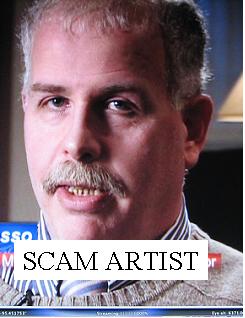Wikipedia's definition of bullying says that bullying involves the torment of others through verbal harassment, physical assault, or other more subtle methods of coercion such as manipulation.
And that letter is just one example of the many instances of this behavior, and he doesn't seem to realize that it's not acceptable. He even had the nerve to say he wasn't above 'exortion' 'blackmail' and 'coercion', it appears as though he fits this categorization quite well. This observation was made in this post by The Way I Like It.
"If aggressive behaviour is not challenged in childhood, there is a danger that it may become habitual. Indeed, there is research evidence, to indicate that bullying during childhood puts children at risk of criminal behaviour and domestic violence in adulthood."That is striking. This is someone who graduated from childhood to adulthood thinking that exerting physical and psychological power over someone else through intimidation and other underhanded tactics is acceptable. He has no concept of social norms. Some people have been unlucky enough to run across the workplace bully, and Cafasso fits part of that bill. From the workdoctor: how to deal with the office bully there is a synopsis of the workplace bully, which I will distill down to how it relates in Joe Cafasso's case.
At the School of Bully Studies, found at workdoctor.com, they point out that a Canadian psychologist and founder of stressfree.com, Dr. Toby Rutner, says bullying behavior has strong links to childhood. So I'd like to know what in childhood triggered this behavior. Could his hatred and abuse of women have something to do with the four sisters he grew up with?
Joe Cafasso targets the third group of people that The School of Bully Studies suggests are prime targets for abuse by people like Cafasso. Those three groups are the visibly vulnerable, cooperative chumps and the bold, best and brightest. The bold and best division, are creative hard-working individuals who are merely oblivious to what Cafasso is trying to accomplish. This is the group he tends to gravitate toward, and it seems as though, from the bullying point of view, it has been a resounding success.
The bully uses a variety of manipulation tactics to squeeze his target into submission.Dr. Rutner is a Canadian psychologist and the founder of stressfree.com. He describes the attack mode of a Joe Cafasso like this:
Rutner says battle plans can include making an associate look bad, taking credit for another's work, pulling the rug out from under a co-workers feet, intimidation, backstabbing and sabotage. "These competitive anti-social behaviors are blatant and unsophisticated forms of manipulation in which an individual attempts to advance himself at someone else's expense," he explains.Dr. Gary Namie, a social organizational psychologist and co-founder of workdoctor.com. He says if you stand up to a bully, he'll back down. He says you have to learn new skills to deal with a bully like Cafasso. "Like it or not," says Dr. Rutner, "you have been drawn into a serious competitive game."
Rutner says rather than feel offended or abused, feel challenged; view yourself as an opponent, not a victim. Next, he suggests trying to identify the bully's objective and determine what methods he uses to obtain his goals. Also, "Attempt to recruit allies who are having similar experiences and coordinate strategies for dealing with the bully," recommends Rutner.Let the games begin.
Anticipation can be key in disarming your opponent and regaining control. Rutner says you can undermine the bully's efforts by refusing to cooperate with his attempts to make you responsible for his behavior. "Remember, the game will continue until the bully stops winning," he stresses, "You don't get to choose whether or not you want to play; you can only choose how well you play."


No comments:
Post a Comment